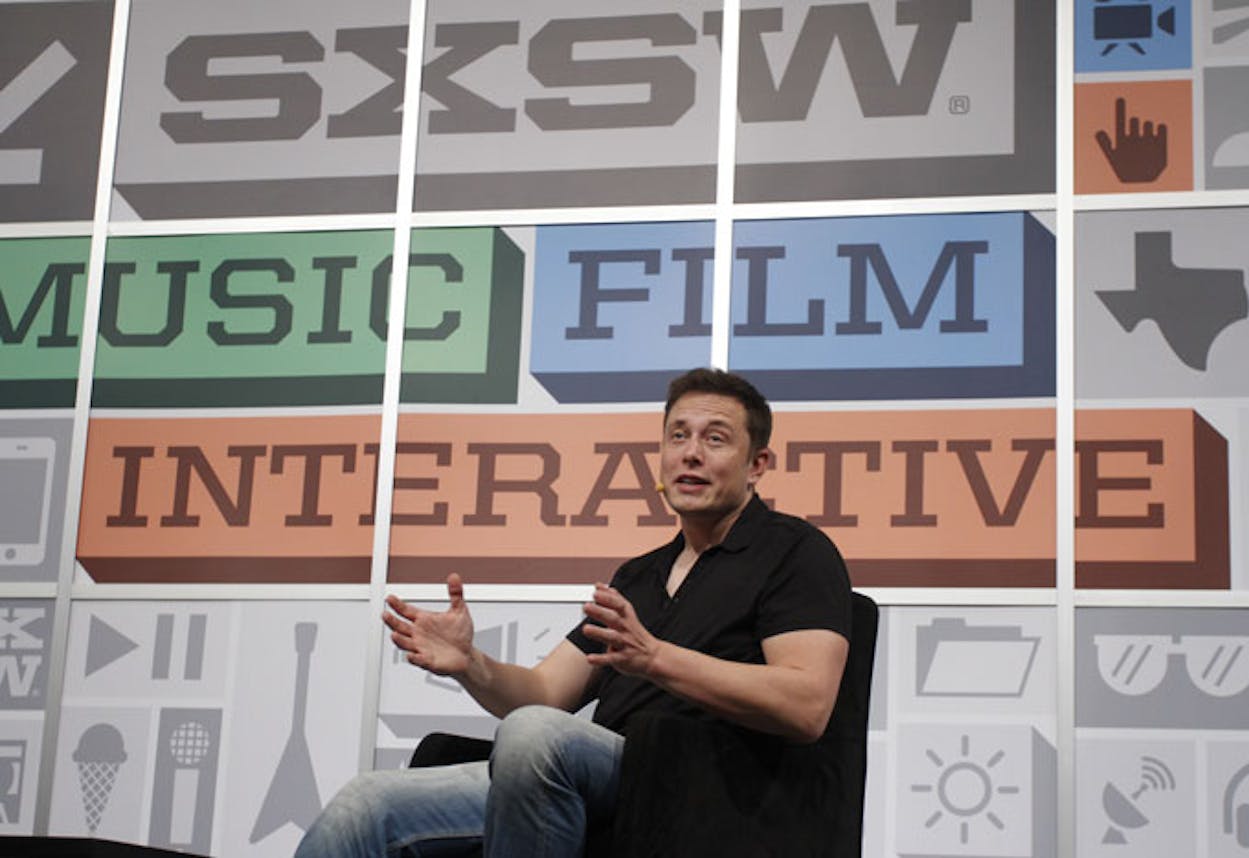“The road to the moon lies through Houston,” said Albert Thomas, a congressman from that city, when it was selected as the home site for the National Aeronautics and Space Administration (NASA) in 1963. But does the road to Mars run through Brownsville? That was the question put to the Lege over the weekend, when Elon Musk, the CEO and chief designer of Space Exploration Technologies (SpaceX), turned up in Austin.
Musk, who is originally from South Africa, made a fortune as a co-founder of PayPal and now has a hybrid public profile—part technological evangelist, part wealthy industrialist, part crank. In the years since PayPal was acquired by eBay (in 2002), Musk has turned his attention to cars and rockets—although in a twist on the usual scenario, his goal is to sell those things. The car company, called Tesla Motors, makes electric cars. SpaceX, meanwhile, makes several types of reusable rockets. Musk’s goal is to bring astronauts—and eventually, private citizens—to Mars. In a keynote speech at SXSX Interactive, Musk suggested that SpaceX was a labor of love. He had always wanted to go to Mars, he explained; when he learned that NASA didn’t have any imminent plans to send manned spaceflights to Mars, he was “disappointed,” and even thought of trying to raise money on behalf of NASA, although of course he ended up taking a different tack.
The company already has two launch sites, one in California and one in Florida. The Rio Grande Valley is apparently a leading contender to be the third; SpaceX officials are eyeing a site just east of Brownsville. The appeal, Musk explained, is largely pragmatic; he was looking for a place relatively close to the equator, and facing east. People in Brownsville seem to feel that this is the greatest geographical accident of all time. In addition to the investment and employment that a SpaceX contract would generate, the whole project has to do with outer space, which inspires some measure of collective wonder and excitement, even if SpaceX is a private company.
One hurdle to Brownsville’s hopes is that Texas has a robust Open Beaches Act. “In Texas,” as the General Land Office puts it, “public access to Gulf Coast beaches is not just the law, it is a constitutional right.” As it stands, per the local government code, counties can decide to close the public beaches—but only for nonprofit events, and for three days a year at most. That would be a problem for SpaceX, and Musk is calling for change. Rene Oliveira, a Democratic representative from Brownsville, has filed legislation that would add an additional exception for rocket launches. The day before his SXSW keynote, Musk had testified at the House Appropriations Committee in support of it.
Musk wouldn’t be the first businessman to find Texans strangely stubborn about land use issues. On the other hand, the Open Beaches Act does predate the era when anyone wanted to launch rockets from Texas beaches, and given the potential economic impact of the project, the Lege may be willing to modernize.
- More About:
- Politics & Policy







